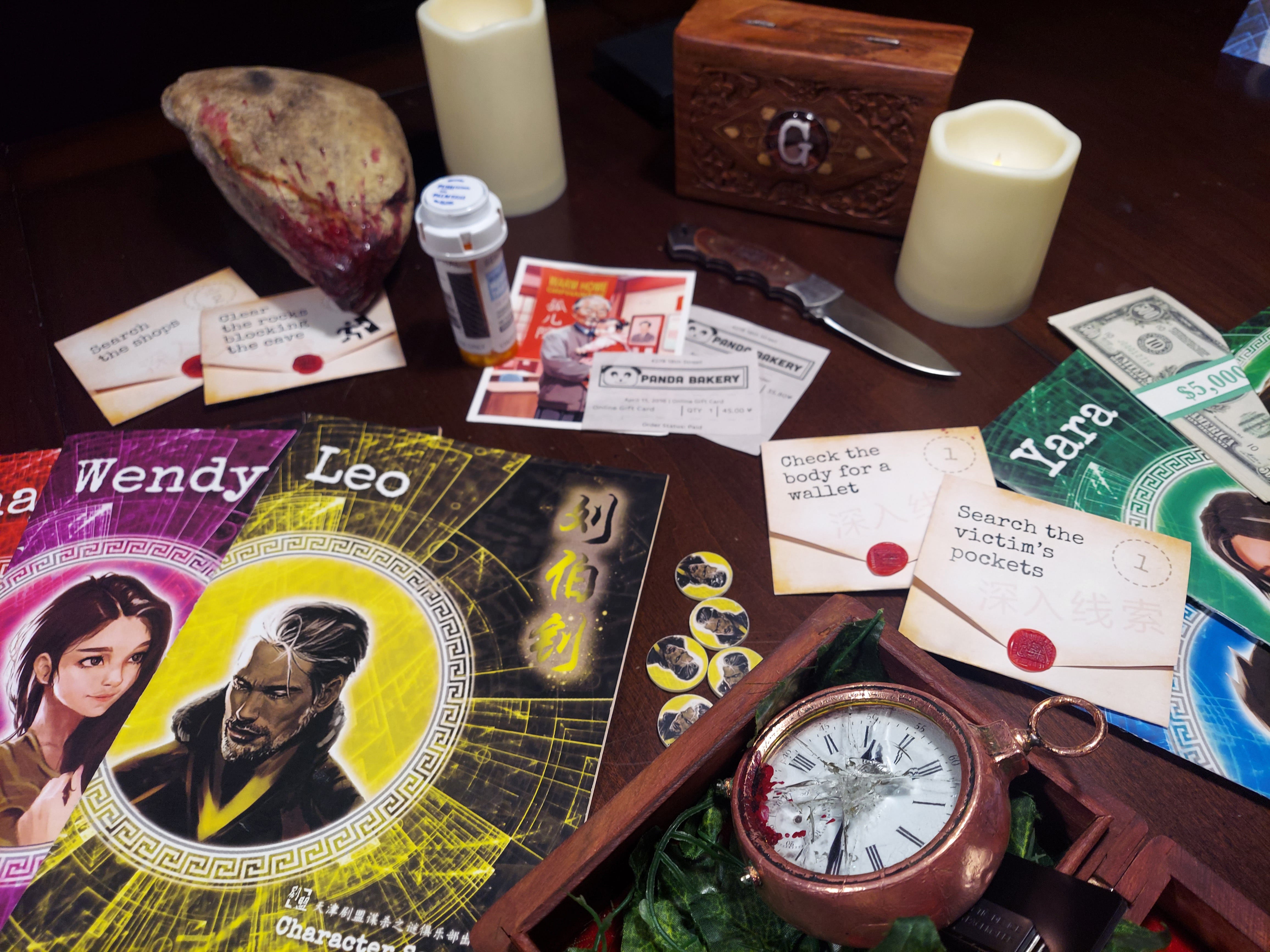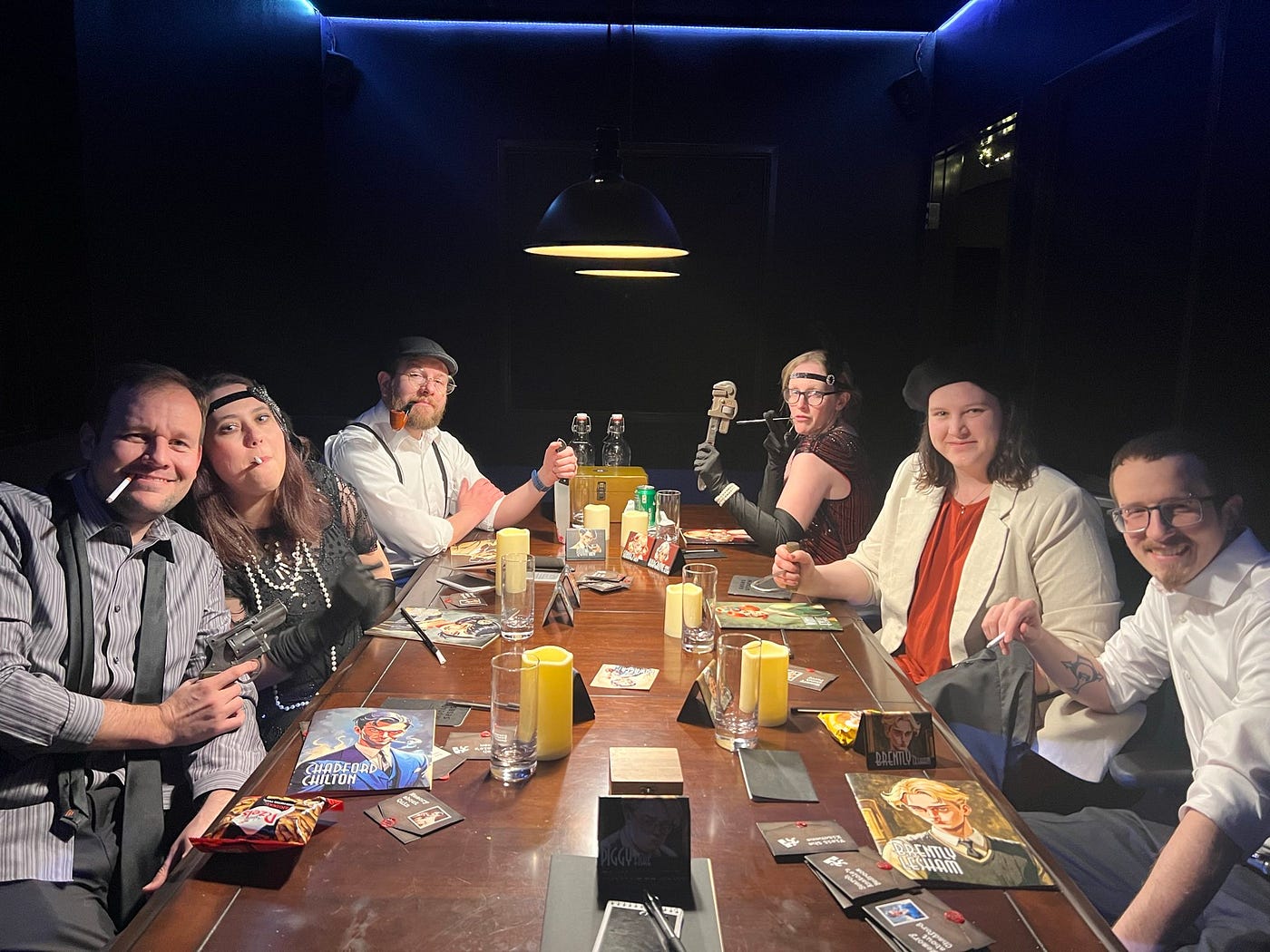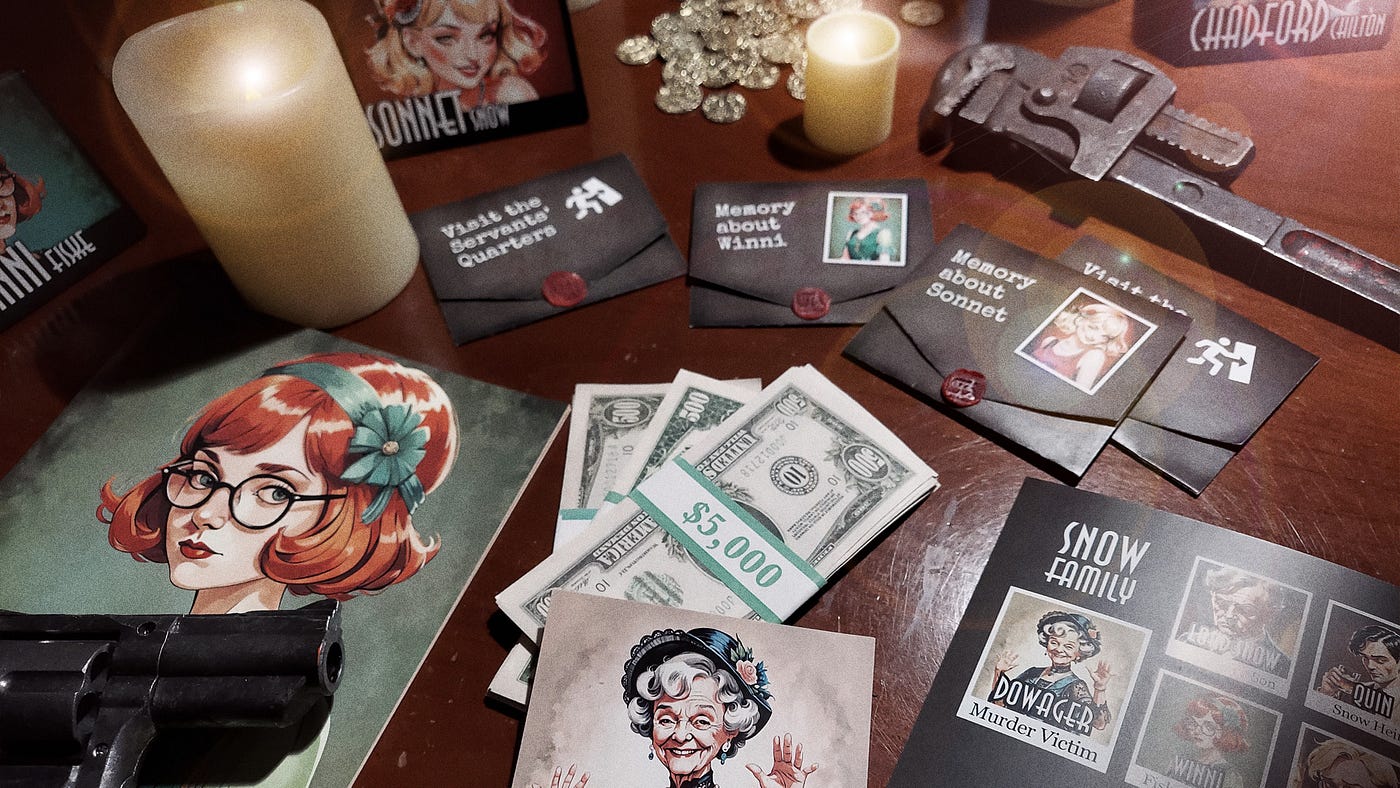It’s Murder In Denver, And You’re The Culprit
Popular escape game makers, Rabbit Hole Recreation Services, adapt China’s big new cultural export: Jubensha


Closing the 16-page (roughly 9,000-word) character script I’d just spent the past 50 minutes reading, I tried to play it cool and not act suspicious. Moments before, I’d learned that my character committed the murder that would soon be investigated by me and my four “acquaintances.” My friends who I’d come with were also finishing up their own character scripts and gazing suspiciously around the room, wondering who the killer was among us.
This was only the beginning of our four-hour Jubensha experience — a new type of experiential game born out of China that contains elements of Dungeons & Dragons (role-playing), tabletop games (tokens, cards, envelopes) and escape rooms (physical clues, mystery-solving).
After the first hour of script reading, the remaining three hours were led by a Jubensha Master — a cross between a Dungeon Master in D&D and a Game Master in an escape room — who served to keep our characters and narrative on the guardrails, and to activate special effects and environmental enhancements.
The literal translation of Jubensha is “script murder” and it is, at its core, a murder mystery game. There will be at least one (possibly more) deaths and you’ll have to sort through all the props and alibis to figure out whodunnit. And in that way, the experience is like a heightened version of an escape-room-in-a-box, with heavy roleplaying.
I found my character’s script to read like an engrossing novel. A third of the story covered my character’s childhood and early adulthood, the next third set up the night of the murder, and the final third kicked off the game by detailing the events that led to the murder. There were no lines to be memorized, but there were important parts of my character’s story I’d later need to recall as I interrogated the other characters and defended my own. This, to me, seemed like a brilliant hack for one of the most important (and intimidating, and time-consuming) aspects of learning to play D&D: character development.

As we played, a continuously rolling soundtrack — sometimes barely perceptible, but always there — ensured the room was never silent. During key moments in the game, lightning would flash and thunder would sound. At other times, the lights would come up so we could investigate an object or read a document. During a specific plot point, the lighting turned green. These things happened seamlessly and with no obvious involvement from our Jubensha master, driven by what Katie Goforth, Operations Manager at Louisville, Colorado’s Rabbit Hole Recreation Services (who lays claim to being the first homegrown Jubensha studio in the United States) calls their “Scene Machine.”
“We are still developing and refining our tech stack within the temporary space that we are currently occupying. It’s not our forever home, but it allows us to test new ideas and deliver the kind of premium experience we’re aiming for. We’re currently on the fifth iteration of our Scene Machine and are continuing to innovate how our Jubensha games are presented.”
What we’re used to seeing in American location based entertainment is someone creating a business, and within that business they create games or experiences, which they then license to other people who want to operate them in other locations.
Things are different in China, where Jubensha originated, because the creators make the game, sell it in a box, and then different Jubensha studios make it available to their customers. Katie says that they believe their model aligns closely with how many Jubensha studios in China operate.
Get Danielle Riha’s stories in your inbox
Join Medium for free to get updates from this writer.
SubscribeSubscribe
“We purchase licensed scripts from Chinese creators and host games in our venue, similar to how a board game café would offer in-house gameplay without reselling the materials. We don’t distribute or resell the games, but rather focus on creating immersive, facilitated experiences based on the purchased material.”
Katie regards their translation process as a “closely guarded” part of what makes their games unique, but broadly speaking, it begins with carefully selecting a script they believe will resonate with Western players.
“This is trickier than it sounds,” she says, “as many scripts take unexpected turns late in the story that don’t translate well culturally, which can lead us to abandon them entirely and start from scratch.”

Once they’ve identified a promising story, they run it through a “developed stack of tools” to create a working English draft. But this is just the starting point. In addition to Rabbit Hole’s literal translation of the game from Chinese to English, they have also adapted it culturally. Some Chinese games, for example, contain topics like child abuse and sexual violence, which they’ve decided not to include.
“Literal translations often fall flat, so we rewrite significant portions of the script to align with Western sensibilities and storytelling conventions,” Katie explains. “During this stage, we develop the experience surrounding the story, which includes designing the Scene Machine special effects, creating the physical evidence and other game materials, and integrating other game-enhancing features.”
The three hours of guided gameplay made for a relaxing and unhurried pace. When playing games like this, you are so often up against a clock to complete your mission and it was refreshing not to have to rush and really settle into the story. By the time we reached the end of our game, it was starting to feel like we’d left no stone unturned… and there were certainly countless paths and narratives that we had wandered down.
Without the need to constantly watch the clock, I was fully absorbed in the game, and the time flew by. We eventually took a vote and the murderer was revealed, but in the end, there was a much bigger story to uncover than just who brained that poor guy to death. We had a lot of laughs along the way — many from our team, but also some great ones from our Jubensha Master — and we all agreed we can’t wait to come back for the game they’re currently developing, one Katie says is decidedly more scary and horror-themed.
Currently, Studio 五 (Studio 5) is at the same location as Rabbit Hole Recreation Services in Louisville, its parent escape room company a few doors down. They have begun conversations with a landlord of a nearby space to build out a dedicated Jubensha space. There, they plan to house five Scene Machines and a dedicated lobby where food and drinks will be provided, turning the experience into a full destination rather than a standalone game.
They are also currently working toward opening a second Rabbit Hole location in Denver off South Broadway, just north of I-25. That venue will feature six escape rooms (both new and those already existing at their flagship Louisville location) as well as another dedicated Jubensha studio. If the current momentum continues, Katie says they envision opening additional Studio 5 locations across the Denver metro area.
Discover the latest immersive events, festivals, workshops, and more at our new site EVERYTHING IMMERSIVE, home of NoPro’s show listings.
NoPro is a labor of love made possible by our generous Patreon backers. Join them today and get access to our Newsletter and Discord! You can also GIFT memberships.
In addition to the No Proscenium website and our podcast, and you can find NoPro on Bluesky, Facebook, LinkedIn, YouTube, Instagram, and in the Facebook community also named Everything Immersive.